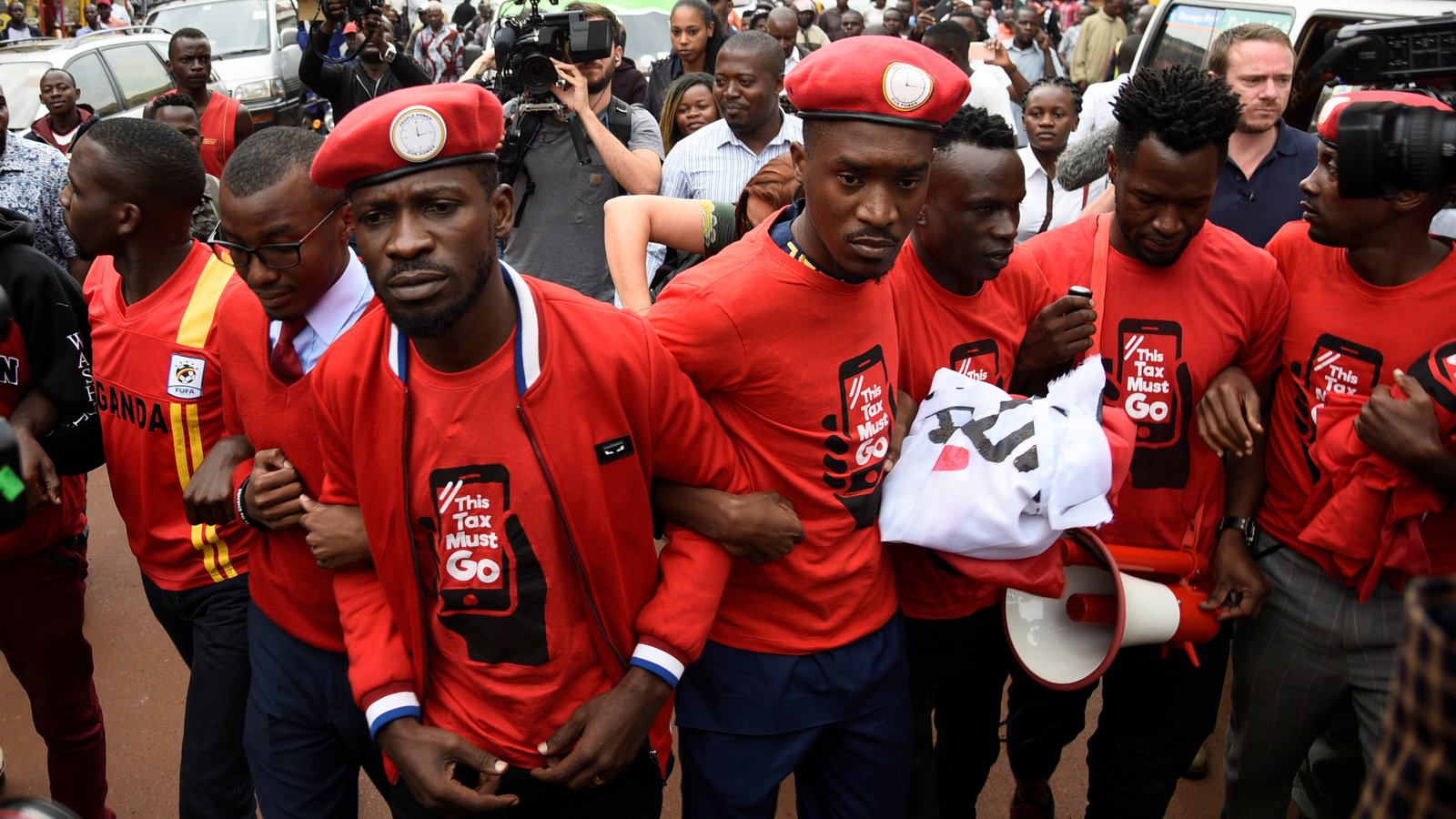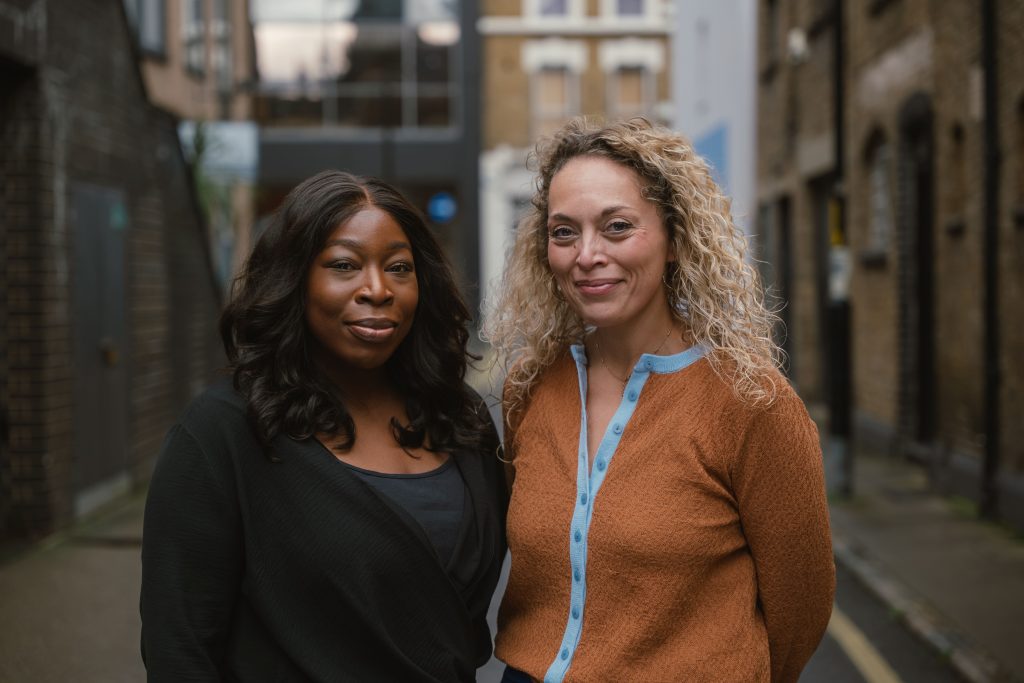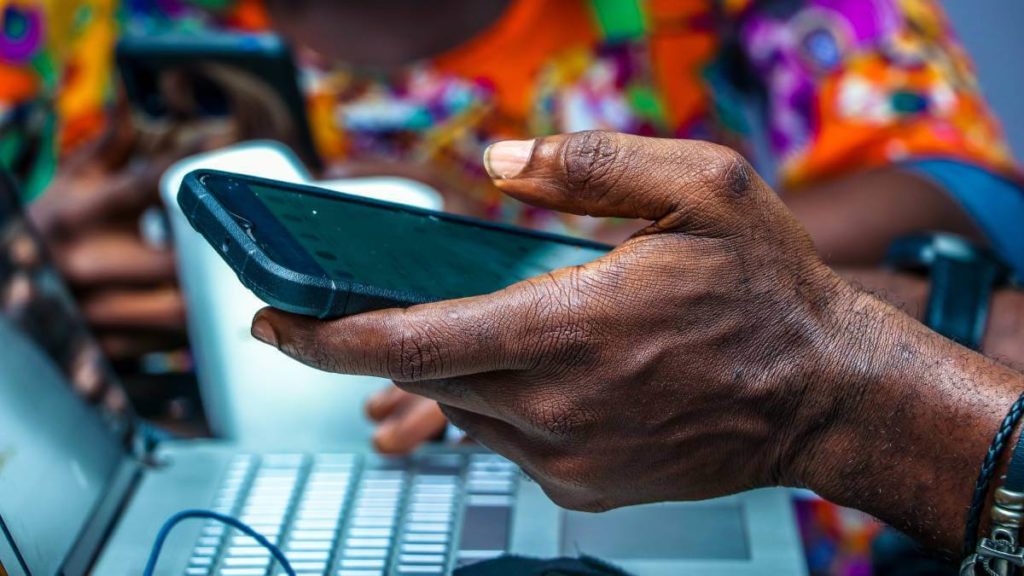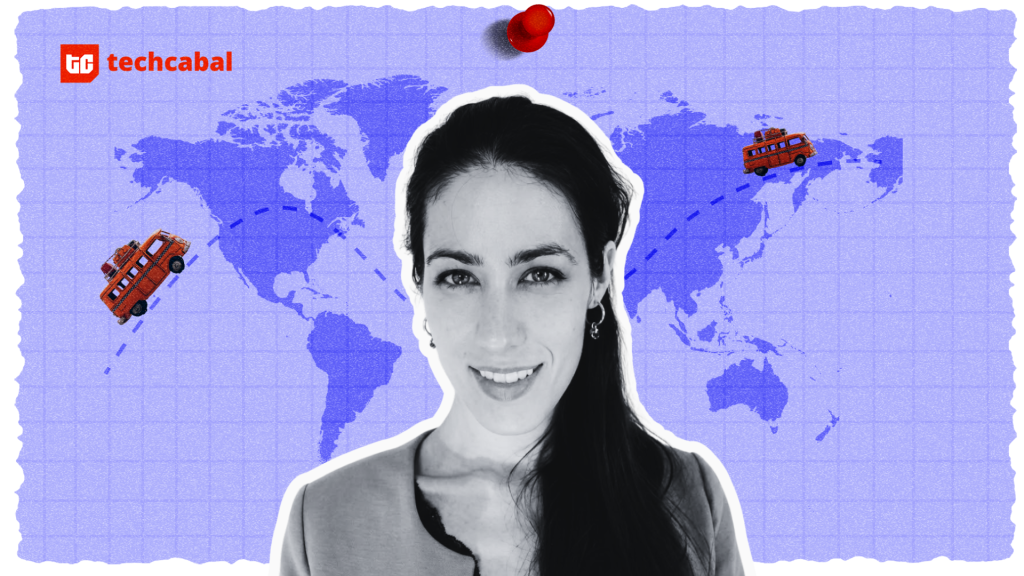During an interview with a Ugandan radio station on Tuesday, Bobi Wine was forced to abruptly end the conversation because soldiers had entered his residence.
According to him, these soldiers beat up his guards while he was on air. Later that day, the Uganda Communications Commission (UCC) ordered internet service providers to shut down all social media services. MTN Uganda confirmed that it received and implemented the order.
Wine says a private outfit that has guarded his residence for 12 years was ordered to stop providing him security. The order appears to have come from state authorities.
It has been a week of rising tensions in the East African country where a presidential election will be held on January 14.
One of Uganda’s most famous hip hop stars, Wine is running to defeat Yoweri Museveni who has ruled with an iron fist in a velvet glove since 1986. The 76-year old incumbent is seeking a 6th term.
Wine officially became a politician in 2017 after winning a seat in parliament. Since then, his profile has risen to the status of being called the ‘Ghetto president’, even by Museveni.
With a population of about 45 million people, Uganda’s demographic divide pits an older urban elite comfortable with Museveni’s eternal reign against a younger, tired generation seeking change.
Wine, who is 38, stands between these two and aims to weld all sides by tapping into his musical legacy.
But like Museveni challengers of previous election years, a mix of ambition and popularity has made Wine an enemy of the government.
His concerts and public appearances are often banned or disrupted by the Ugandan police force. Traditional radio and TV stations, which are mostly aligned with the government, prefer not to host him on air.
Wine has relied on social media platforms to energize followers of his ‘People Power’ movement notable for their red berets. Indeed, social media was responsible for alerting the world to Bobi Wine’s growing influence in Ugandan politics after he was arrested and charged with treason in 2018.
He currently boasts over 1.7 million followers on Facebook, 1 million on Twitter and more than 500,000 on Instagram. Museveni has more followers on Twitter but lags behind Wine on the other two.
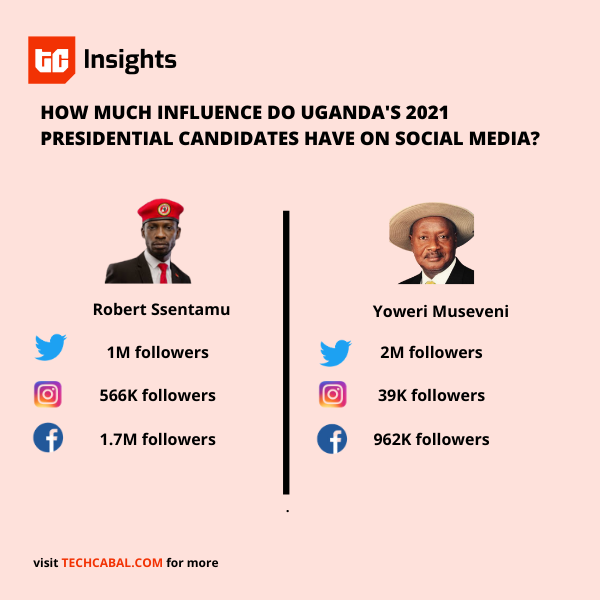
An effective social media blackout could cut him off from the majority of these followers, further complicating an already Herculean bid to beat Museveni in polls that many believe will hardly be free and fair.
As of January 2020, social media penetration in Uganda stood at around 5.6% according to DataReportal, an analytics firm. They estimate there are under 3 million social media users in the country.
Most of these users – about 47.2% – are on Facebook, the platform Wine has used for most of his outreach especially live streams.
In a televised address on Tuesday, Museveni said Facebook had been shut down for taking sides against his party, the National Resistance Movement.
“We can’t tolerate that arrogance for anybody to decide what is good or bad for us… If you want to take sides against NRM, then you should not operate in Uganda,” he said.
But this accusation of arrogance could be seen as an excuse for Museveni’s government to do what it has done multiple times over the past decade.
In 2011, the UCC blocked Facebook and Twitter to frustrate a protest against increases in fuel and food prices. There were shutdowns in 2016 before elections in February and in May for Museveni’s inauguration.
One shutdown in 2018 was created to enforce a social media tax.
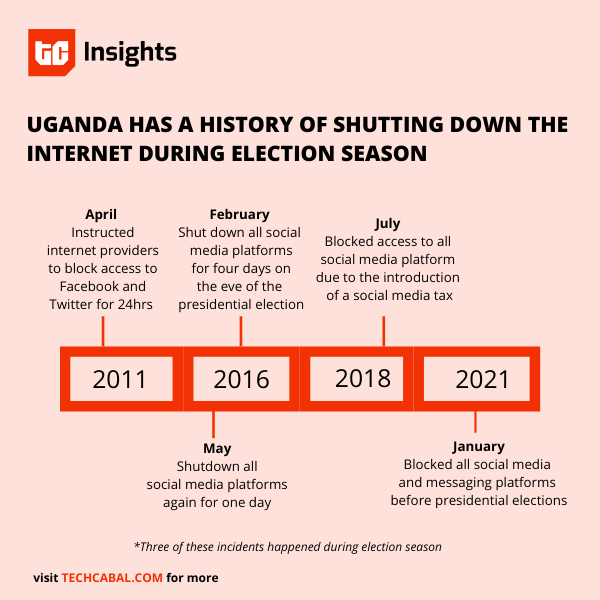
Primed by this history, Ugandans prepared to evade the shutdown and have continued tweeting through the use of VPNs.
Wine seems to have prepared too. On Sunday, he called the attention of his Facebook followers to slowing internet speeds, encouraging them to brace up for an eventual shutdown.
“Make sure that you download VPN if you haven’t, so that you can keep the communication. We know they are also planning to switch off mobile money services. Please prepare accordingly,” he said.
He may already be using a VPN. His Wednesday morning tweet alert about his security being taken away came after the UCC’s blackout order. It demonstrates his determination to fight on no matter what, but he will need Uganda’s young population to match his resolve and stay online too.
When TIME magazine visited him in September 2019, he was in boxing gear undertaking what seemed like a gruelling regime. But it wasn’t a preparation to fight Museveni physically. “I’m making my body resistant to beating, to make sure I don’t get so bruised when I take the blows,” he said.
Sure, he’s suffered and may suffer more physical blows before and after these polls. He’s been pepper-sprayed by the police. He’s had threats against his family and has a scar above his eye after a tortuous police encounter in 2018.
But cutting him off from social media may be the final blow to his – and many Ugandans’ – dream of seeing the end of Museveni’s dictatorship.









